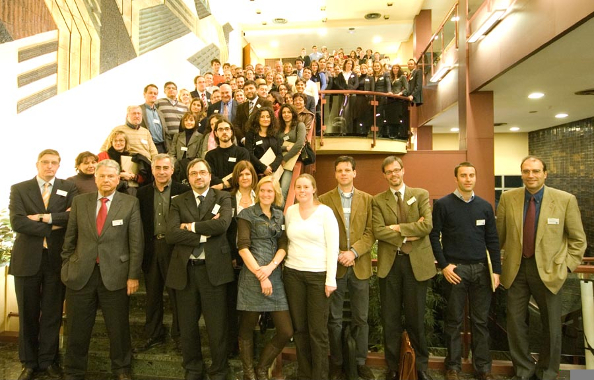Primary bone tumours are rare, accounting ~0.2% of the cancer burden.
Children and young adolescents are frequently affected.
Their aggressiveness has major impact on morbidity and mortality.
Though progress has been made in pathological and genetic typing, the aetiology is largely unknown. Though advances in therapeutic approaches increased survival, significant numbers of patients (~40%) still die.
Within the EuroBoNeT integration will be achieved by staff exchange and website-based discussion forums to increase and disseminate knowledge of primary bone tumours at the molecular level for development of new tools for patient care and cure and technology.
With this integration exchange of material (virtual BioBank), Standard Operating Protocols and the use of technology platforms will enable us to obtain statistical significant datasets, otherwise not achievable due to the rareness and large number of sub entities. A joint programme will contribute in obtaining molecular portraits of tumours, separated in 4 research lines (RL).
In each RL the biology of the separate group (RL1: cartilaginous tumours; RL2: osteogenic tumours and related sarcomas; RL3: osteoclastogenesis and Giant cell tumours of bone; and RL4: Ewing family of tumours) will be examined by genome wide expression and genomic aberration studies. More specific hypothesis driven approaches will be investigated by RNA/protein expression and mutation analysis. Knowledge on normal growth and differentiation will be gathered through in vitro studies. This would lead to further understanding and identification of markers for malignant transformation and/or progression, as well as identification of therapeutic targets.
Next to research, dissemination of knowledge will be achieved by training courses on bone and soft tissue pathology for all interested.
The last is required since patients usually do not present themselves at centres, which necessitates spreading of knowledge.

Members of the EuroBoNeT consortium at the third annual meeting in Valencia, Spain (January 2009)
|